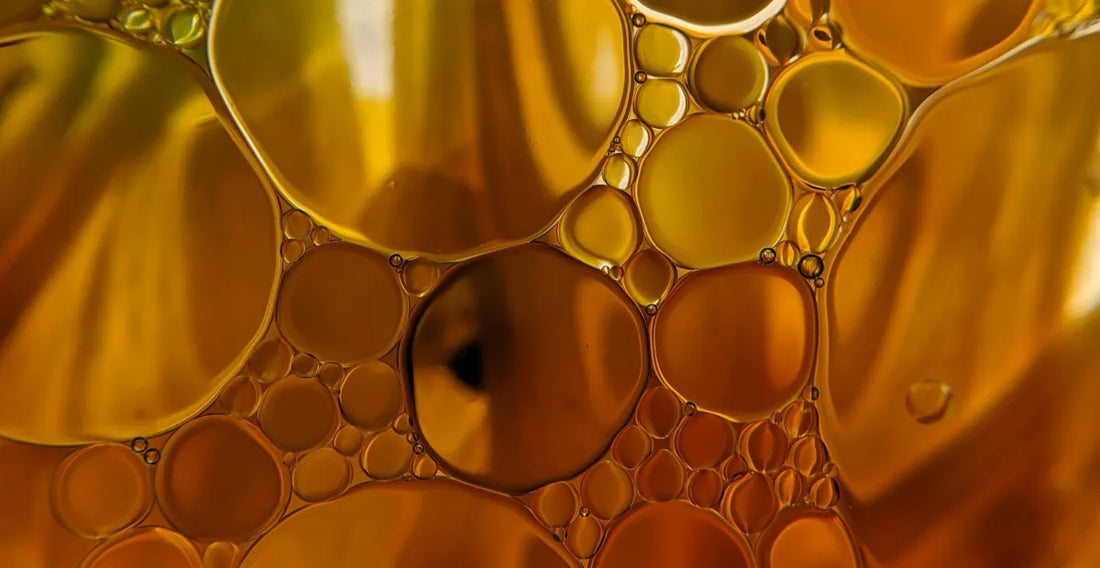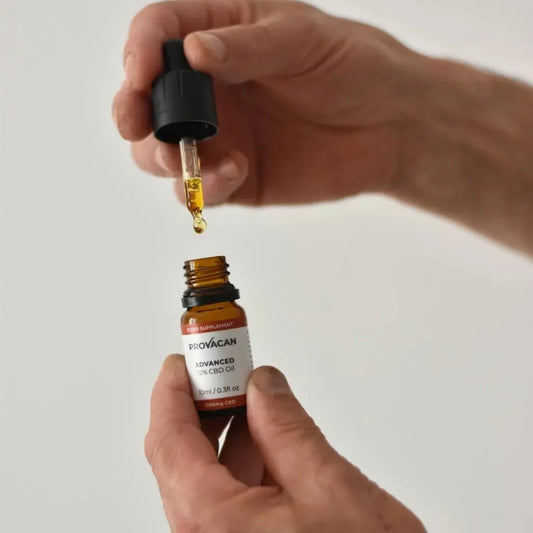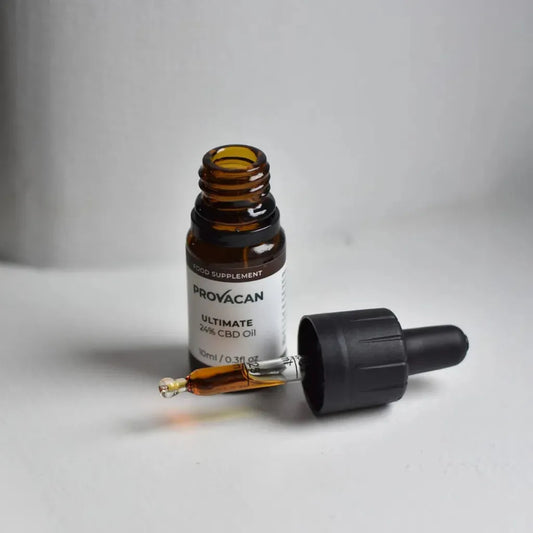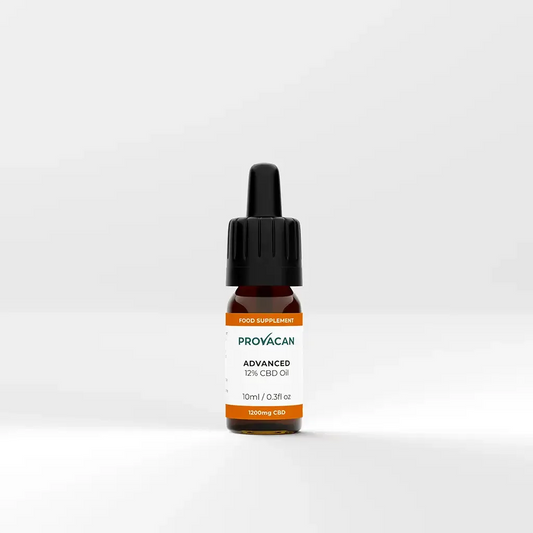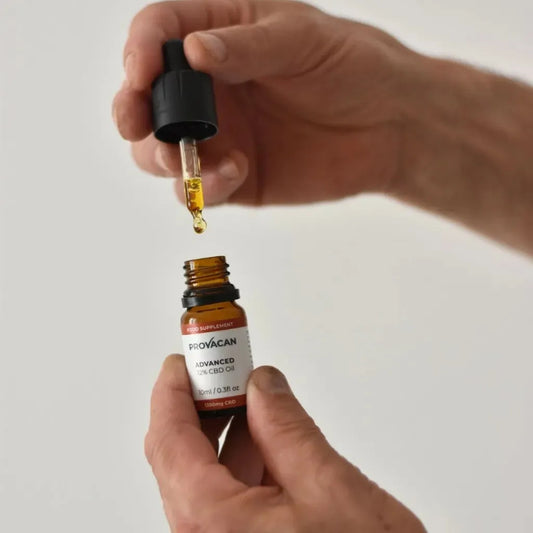Cannabidiol, commonly known as CBD, has gained popularity in recent years for its potential therapeutic benefits. However, there are still many misconceptions surrounding CBD, one of which is its potential to be addictive. In this article, we will explore the truth behind CBD addiction and debunk common myths associated with it.
Is CBD Addictive?
One of the most frequently asked questions about CBD is whether it is addictive. The answer is no - CBD is not addictive. Unlike its counterpart, tetrahydrocannabinol (THC), CBD does not produce the euphoric high commonly associated with marijuana use. This is because CBD does not bind directly to the brain's cannabinoid receptors, which are responsible for the psychoactive effects of THC.
It is important to note that CBD is derived from the hemp plant, which is a variety of cannabis. However, unlike marijuana, hemp contains very low levels of THC. In fact, in order to be legally classified as hemp, the plant must contain less than 0.3% THC. This minimal amount of THC is not enough to produce any intoxicating effects or lead to addiction.
Numerous studies have been conducted to investigate the potential addictive properties of CBD. These studies have consistently shown that CBD does not produce any addictive behavior in humans or animals. In fact, some research suggests that CBD may even have anti-addictive properties, helping individuals overcome substance abuse disorders.
CBD has been used as a treatment for various conditions, including epilepsy, anxiety, and chronic pain. It has shown promising results in reducing seizures in individuals with epilepsy, alleviating symptoms of anxiety, and providing relief from pain. These therapeutic benefits further support the notion that CBD is not addictive, as addiction is typically associated with harmful and compulsive behaviors.
CBD is a non-addictive compound that offers a range of potential health benefits. Its distinct mechanism of action, which does not involve binding to the brain's cannabinoid receptors, sets it apart from THC and eliminates the risk of addiction. As more research is conducted on CBD, we continue to discover its therapeutic potential and debunk any misconceptions surrounding its addictive nature.
Is Cannabidiol (CBD) Addictive?
When it comes to the topic of CBD and its potential for addiction, it is crucial to understand the key distinctions between CBD and other substances derived from cannabis. CBD, or cannabidiol, is derived from hemp, a variety of cannabis that contains extremely low levels of THC, the psychoactive compound responsible for the "high" associated with marijuana use.
According to the World Health Organization (WHO), CBD exhibits no effects indicative of any abuse or dependence potential. This means that individuals who use CBD products can rest assured that they are not putting themselves at risk of developing an addiction. In fact, the WHO goes on to state that CBD holds potential therapeutic value for various medical conditions, further solidifying its reputation as a safe and beneficial compound.
Unlike substances such as opioids or benzodiazepines, which have well-documented addictive properties and can lead to devastating consequences, CBD offers a different experience altogether. Its non-addictive nature sets it apart from these substances, making it a promising option for those seeking relief from various ailments without the risk of dependency.
CBD has been extensively studied for its potential benefits in treating conditions such as epilepsy, chronic pain, anxiety, and even addiction itself. Research suggests that CBD may help individuals struggling with substance abuse by reducing cravings and withdrawal symptoms, offering a glimmer of hope in the battle against addiction.
As the popularity of CBD continues to grow, it is essential to dispel any misconceptions surrounding its addictive potential. The scientific consensus, as supported by organizations like the WHO, is clear: CBD does not possess the same addictive properties as substances like opioids or benzodiazepines. This distinction is crucial for individuals seeking alternative forms of relief and those who are concerned about the potential risks associated with addiction.
Signs of Addiction
Understanding the signs of addiction is crucial to debunking the myth that CBD is addictive. Addiction typically involves a compulsive craving and continued use despite negative consequences. Since CBD does not produce the same addictive effects as THC, the signs of addiction associated with marijuana use do not apply to CBD. It is important to differentiate between the two substances to gain a clear understanding of CBD's effects.
When it comes to recognizing signs of addiction, it is essential to consider various factors that may contribute to addictive behaviors. While CBD itself is not addictive, it is important to acknowledge that addiction can stem from underlying psychological or emotional issues. These issues can manifest in different ways, such as an individual using CBD as a coping mechanism for stress or anxiety.
It is important to understand that addiction is a complex condition that can be influenced by a combination of genetic, environmental, and social factors. For instance, individuals who have a family history of addiction may be more susceptible to developing addictive behaviors, regardless of the substance they are using. Therefore, it is important to approach the topic of addiction with empathy and a comprehensive understanding of its multifaceted nature.
CBD Has No Psychoactive Effects
Another important distinction to make is that CBD does not have any psychoactive effects. THC is the primary psychoactive compound found in cannabis, responsible for the mind-altering high. CBD, on the other hand, works differently in the body and does not produce any psychoactive effects. This means that you can enjoy the potential therapeutic benefits of CBD without experiencing a "high" sensation.
One of the reasons why CBD does not have psychoactive effects is because it interacts with different receptors in the brain compared to THC. THC binds to the CB1 receptors, which are primarily found in the brain and central nervous system, leading to the euphoric and psychoactive effects. CBD, on the other hand, has a low affinity for CB1 receptors and instead interacts with other receptors in the body.
One such receptor that CBD interacts with is the serotonin receptor, specifically the 5-HT1A receptor. Serotonin is a neurotransmitter that plays a crucial role in regulating mood, anxiety, and stress levels. By interacting with the 5-HT1A receptor, CBD can help modulate serotonin levels, potentially contributing to its anxiolytic (anti-anxiety) and antidepressant effects.
In addition to serotonin receptors, CBD also interacts with other receptors such as the vanilloid receptor (TRPV1) and the adenosine receptor. The TRPV1 receptor is involved in pain perception and inflammation, and CBD's interaction with this receptor may contribute to its potential analgesic (pain-relieving) and anti-inflammatory properties.
The adenosine receptor is involved in regulating sleep and wakefulness. CBD has been found to interact with this receptor, potentially promoting better sleep quality and aiding in the management of sleep disorders such as insomnia. This interaction may also explain why some individuals report feeling more relaxed and calm after consuming CBD.
While CBD does not produce psychoactive effects, it can still have an impact on cognition and mental state. Some individuals may experience a sense of relaxation or improved focus when using CBD, but this is not the same as the intoxicating effects associated with THC. The non-psychoactive nature of CBD makes it a promising option for those seeking therapeutic benefits without the unwanted side effects of feeling "high".
CBD's Positive Impact on Mental and Physical Health
Research has shown that CBD may have potential therapeutic benefits for various mental and physical health conditions. Let's explore some of these conditions:
Seizures
CBD has shown promise in reducing the frequency and severity of seizures in individuals with certain types of epilepsy. In the USA fact, the FDA has approved a CBD-based medication called Epidiolex for the treatment of severe forms of epilepsy, such as Dravet syndrome and Lennox-Gastaut syndrome.
Anxiety
Many individuals turn to CBD for its potential calming effects on anxiety. Although more research is needed, early studies suggest that CBD may help reduce anxiety symptoms in individuals with conditions such as social anxiety disorder and post-traumatic stress disorder (PTSD).
Depression
Preliminary research also indicates that CBD may have antidepressant properties. Some studies have shown that CBD interacts with serotonin receptors in the brain, which are involved in regulating mood. This interaction may help improve symptoms of depression.
Importance Of Taking The Right Dose
While CBD shows promise in various therapeutic areas, it is crucial to take the correct dosage for optimal results. Different individuals may require different doses depending on factors such as body weight, metabolism, and the condition being addressed. It is recommended to start with a low dose and gradually increase under the guidance of a healthcare professional.
CBD Addiction: Separating Fact from Fiction
Despite the scientific evidence supporting CBD's non-addictive properties, the myth of CBD addiction continues to persist. It is essential to separate fact from fiction to make informed decisions about using CBD products.
Debunking Common Myths about CBD Addiction
Let's debunk some common myths associated with CBD addiction:
-
Myth 1: CBD produces a high.
This is false. As mentioned earlier, CBD does not have any psychoactive effects and does not produce a high.
-
Myth 2: CBD is a gateway drug.
This is also false. CBD is not associated with an increased risk of using other substances.
-
Myth 3: CBD leads to dependence.
Again, this is a misconception. CBD does not exhibit any properties that lead to dependence or addiction.
Buy CBD
If you are interested in exploring the potential benefits of CBD, it is essential to purchase high-quality products from reputable sources. Look for CBD products that are lab-tested, use organic hemp, and have positive customer reviews.
In conclusion, CBD is not addictive. Its non-psychoactive nature and potential therapeutic benefits make it an appealing option for individuals seeking natural alternatives for various health conditions.
Understanding the science behind CBD and debunking common myths will help you make informed decisions about incorporating CBD into your wellness routine.

